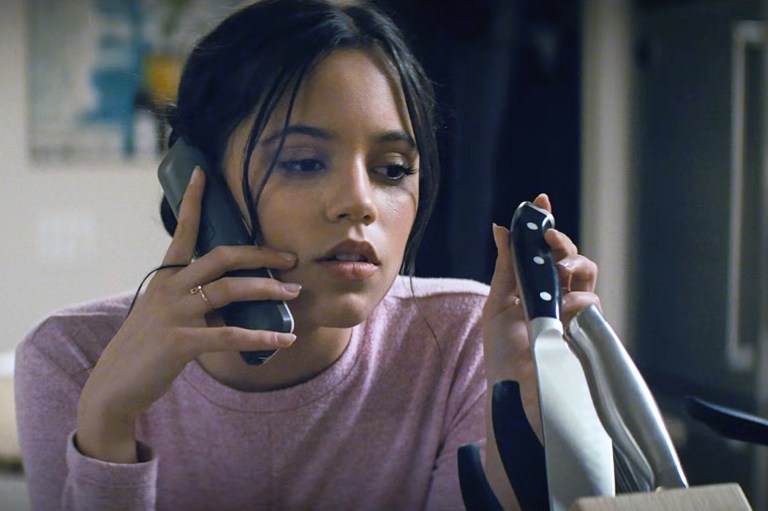5 Dos And Don’ts When Dealing With Those Who Are Emotionally Damaged
DON’T say “get over it.” I’ll tell you a secret. Any and every person who’s endured any type of emotional scarring knows damn well they need to get over their hurt. You saying the words “get over it” is like adding kerosene to an already existing fire.
By ![]() Mei Mei
Mei Mei
We all have faced some demons in our lives and it’s never an easy process for anyone. However, when it comes to helping others fight their inner battles, here are a few table manners to consider when handling someone who’s been emotionally damaged.
1. DON’T say “get over it.”
I’ll tell you a secret. Any and every person who’s endured any type of emotional scarring knows damn well they need to get over their hurt. You saying the words “get over it” is like adding kerosene to an already existing fire that they’ve been trying to put out since the fire first started. Needless to say, it’s not effective. In fact, it’s the fastest way for you to get shut out of helping the person you’re trying to “fix.” And that’s just it. It’s not your job to “fix” anyone. It’s your job to be supportive, to be patient and to never EVER rush their healing process. Everyone has a different hurt and a different time line to get past it. Respect that. Please.
DO say “you’re better than this.”
Remind your loved one that she/he is stronger than the pain they’re going through. Bring attention to where they should be strong, not where they shouldn’t be weak. If she’s still standing, she’s one tough bitch. If he’s still kind, he’s not weak, he’s stronger than you realize. Remember that for yourself when you’re handling someone who’s been through hell and back. They made it back, so don’t dismiss their experiences. The most effective way to show someone who’s hurt that you’re there for them is to highlight everywhere these emotionally wounded warriors shine. Trust me, if they’re not over the hurt, they’re replaying every bad memory like a horribly broken record that they don’t know how to turn off. You commenting on anything other than positive outlooks on an instant replay they’re playing in front of you will guarantee to push them further into reclusiveness. Sensitivity is key.
2. DON’T say “I understand.”
You might be thinking, “but I DO understand”—no. No you don’t, so stop it. It doesn’t matter how many psychology courses you took in college or how many sociology books you’ve read. It doesn’t even matter if you’ve gone through similar experiences. Everyone’s experiences will differ and everyone’s levels of strength ARE NOT. THE SAME. If you breezed through a certain stage of life and you’re seeing someone struggle behind you, don’t assume they have the same endurance/stamina as you to get through it the way you did. You wouldn’t want someone making you feel like crap for not being able to get through a hurdle because “everyone else” did it. Everyone gets to the finish line in their own way and emotional healing certainly doesn’t come in a pretty “one-size fits all” package. Remember that everyone is unique in their experiences and there is NO wrong way to overcome the negative ones.
DO say “I can appreciate that.”
Even if you really do think you understand, a great way to empathize without bringing your experiences into their hurt is to let them know you appreciate what they’ve gone through. Saying you understand might seem like you’re taking away the focus on what happened to them and making it about something you went through instead. That might not be your intention and as much as you may think your friend/loved one could benefit from hearing how you got over it, the safer road to take would be to give them your full attention and listen to their perspective on the matter they’re trying to overcome. Perhaps there’s a deeper dimension in their experiences that can provide insight to things you’ve already gone through. You don’t know what you don’t know, but they’ll recognize you giving them your time to learn. They’ll be grateful for it and it’ll go a long way for both of you, I promise.
3. DON’T alienate.
The ABSOLUTE worst thing you can do to someone who’s getting over emotional turmoil is make them feel like shit for it. Constantly reminding them that they’re the only ones going through what they’re going through and that they’re only hurting themselves will only exacerbate the issue. It doesn’t matter if everyone else in your peer group is in agreeance that your friend needs to stop moping and get out there and meet someone new. Ganging up on your hurting friend (even if it’s with good intentions) is a surefire way to get them to go into a further self-deprecating state. When they’re already fragile, it’s a dangerous territory you’re pushing them into when you single them out on their issues. The goal is to safely extract them from their own self-damage, not make it worse. Be mindful of that.
DO offer a safe place.
So she’s not ready to go on an All Girls’ Night Out excursion with you, or he might not want to go home for the holidays. Don’t challenge the guards they’ve put up.
They. Do. NOT. Owe. You. An. Explanation. For. Anything.
There are things in the past or even in the present that people go through that they’d rather work through themselves and if they need help, will ask for it. Believe me, if they want your perspective, they won’t hesitate to ask it from you. But until that time comes where they’re comfortable enough to let you inside, be patient and always offer a safe zone for them to approach you. Learn where their comfort zones are and join them from time to time. They’ll see you making the effort and want to reciprocate. If they take this step, take it as a huge compliment because it means they trust you enough to leave their safety nest. Don’t lose that trust because it’s hard as hell to regain once it’s been broken. Try your best to be gentle—they’re healing, they’re not healed yet.
4. DON’T enable.
Yes, the idea is to be loving, caring and supportive, but you want to make sure you never cross a line that goes into enabling the person’s misgivings. We all want the best for our friends and family, but when you start to make excuses for them and validate their reasons for staying hurt, you’re not doing anyone any favors, especially not them. In everything, there’s a balance we all need to find to keep ourselves grounded and finding that balance can be tricky, but it’s not impossible. You don’t have to agree with what the person is feeling or pick up an unwarranted crusade for their justice. They can handle their fight on their own, and as much as your enthusiasm to pour spackle all over their cracked up insides is appreciated, it can sometimes get distracting from the root of their issue. Even if they’re in a self-destructive bout, ultimately, they want out of it, they just might not have the control they need to pull themselves out yet. Don’t give them a reason to stay in self-pity. It’s not cute.
DO encourage.
They’re not over it yet, but you can help by motivating them to be productive with their time! Maybe you know that she’s been meaning to get to the yoga studio, but never got around to it. Offer to try it out with her (or anything else you might have a common interest in) and see if she’d be down for it. Ask him what kind of hobbies he’s into already and see if there are any you can connect with him on and plan a small outing. Introducing a new hobby in a new space can do wonders for the psyche. The important part is learning what THEY want to do and encouraging them to go after it. If they’re not ready for that much stimulation yet, don’t be discouraged and leave the offer open ended. When they’re finally ready to take that step with you (and remember every step is a big step to them), give them as much positive energy as you can and pump them up! They’ll love you for it and will be motivated to continue to get better. Progress makes any pain worth it. Help them realize that in their own lives.
5. DON’T assume you know how to “fix” anything.
The second worst thing you can do when you’re trying to help someone out is assume you know what’s best for them. That doesn’t mean that there isn’t a good chance that you do, but when you’re laying out all the “answers” to their troubles, you’re disabling their opportunity to grow and become stronger on their own. That’s not to say you’re supposed to sit back and watch them fall flat on their faces, either. However, when someone is lost, even if you tell them where the exit is, that information is useless if they have no reference to where they themselves are in the maze. Does that make sense? As outsiders looking in, the answers will always appear clearer to you than the ones that are in the thick of it. The best thing you can do when you see what may be ahead of them on their road to recovery is to be a guide along the way. Help them turn by turn and don’t get frustrated if they hit a wall. They’re trying to get out as much as you’re trying to get them out so getting upset that they can’t see what you see yet will hurt both of you and that’s not a fun place to be.
DO acknowledge that a solution is out there.
The good news is, you’re emotionally wounded pal has entrusted you to be there for them, so simply letting them know that there IS a light at the end of the tunnel (although it may not seem like it’s getting through to them in the beginning) will help them immensely. It’s not an easy road to recovery, but with you there to support them in their journey, they’ll be that much more inspired to get back to their better selves. Just remember that like a bruise, there aren’t very many avenues to take to speed up the healing time. You’ve had a bruise before. Right before it goes away it turns all these weird colors and then eventually disappears. People go through weird phases before they get back to normalcy. Unfortunately, in some cases, emotional trauma causes scarring and just like physical scarring, that healing process is uncomfortable, itchy and annoying and although the damage remains on the surface, the pain DOES go away. Scars aren’t pretty, but they remind us that we overcame that hardship in our lives because the only thing we got out of that whole mess was a scar… and it didn’t stop us from getting to the next chapter in our self-discovery.
If you’ve been emotionally damaged in any way, know that there is a solution out there for you and you’re strong enough to beat whatever you’re being challenged with. Don’t give up. And if you’re helping someone get over their hurt, know that you’re doing something they’ll never forget, so be careful with the heart you hold in your hands. You never know how far your actions will affect others. Stay strong, friends! ![]()











